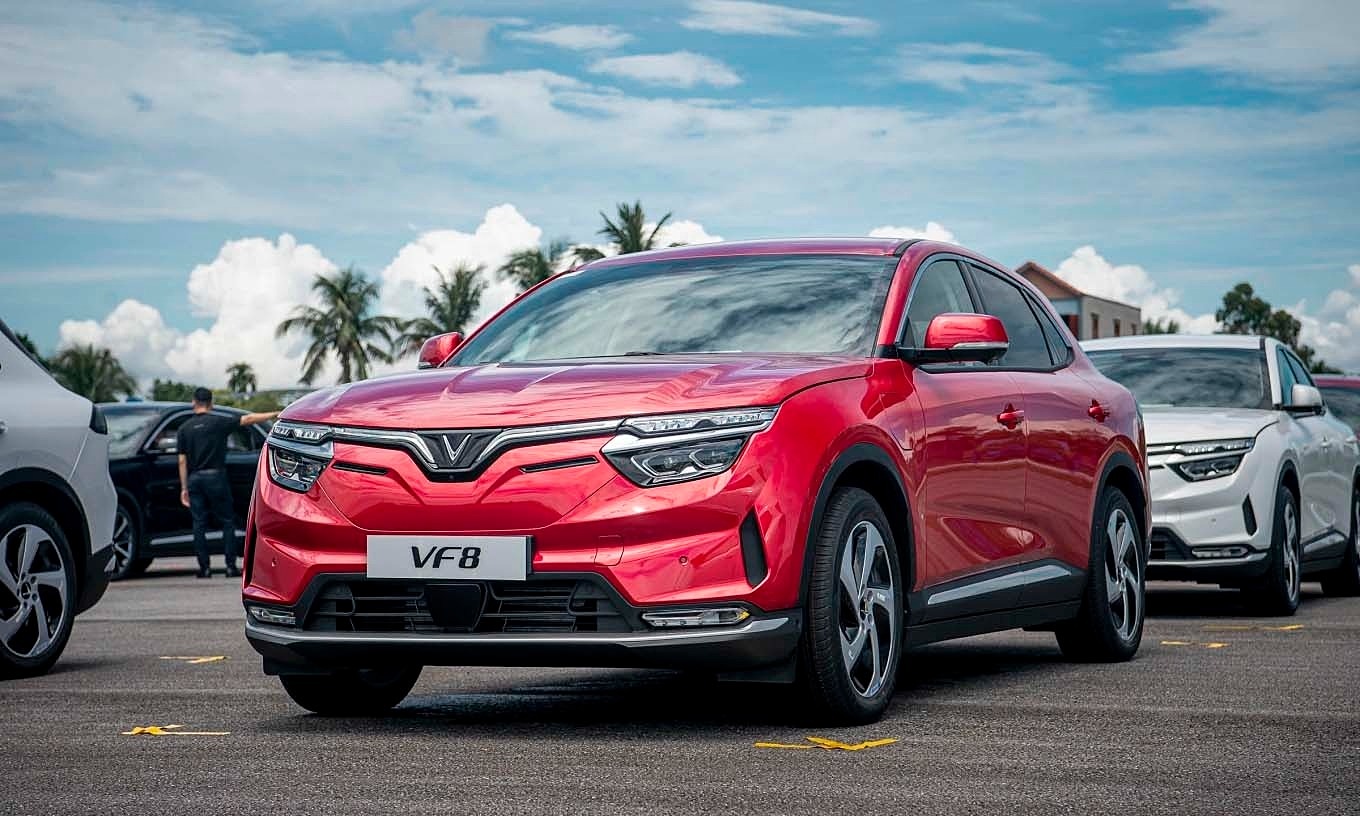VinFast is considering the introduction of hybrid vehicles in the coming year, with plans to integrate gasoline-powered generators into its existing electric car models. This move aims to support consumers in transitioning from traditional internal combustion engine vehicles to electric vehicles (EVs).
According to a source who is well-informed about the matter, VinFast intends to offer hybrid versions for two of its models: the VF 8 and VF 9. However, the company has not officially addressed these reports.
The possibility of VinFast entering the hybrid market was recently highlighted after a Chinese tire manufacturer, Sailun, used images of a vehicle resembling a VinFast model to promote its new tires designed for hybrid cars set to launch next year.
The source indicated that the hybrid models from VinFast are likely to fall under the extended-range electric vehicle (EREV) category. These vehicles operate primarily on an electric motor but include a gasoline-powered generator to recharge the battery when needed. This type of hybrid is seen as a solution for addressing concerns related to long-distance travel and the limited availability of charging stations.
Benefits of EREV Technology
EREVs provide several advantages:
- They allow drivers to travel longer distances without the worry of running out of battery power.
- The gasoline generator acts as a backup, ensuring that the vehicle can continue operating even if charging infrastructure is not readily available.
- This technology helps bridge the gap between fully electric vehicles and traditional gasoline-powered cars, making it easier for consumers to adapt to the EV market.
Market Trends and Competition
VinFast’s decision to explore hybrid options aligns with a broader trend among global automakers. Many companies that initially focused solely on all-electric vehicles have since reconsidered their strategies.
For example:
- Honda, Mercedes, and Volvo were once committed to phasing out internal combustion engines entirely but have since adjusted their approaches.
- BYD, the world’s top-selling new-energy vehicle brand, continues to rely heavily on hybrid models as a key component of its sales strategy.
In Vietnam, hybrid vehicle sales have been growing steadily over the years. Major brands such as Toyota, Honda, Nissan, Suzuki, and Subaru have contributed to this expansion. Additionally, Chinese automakers like BYD, Jaecoo, and Lynk & Co are also increasing their presence in the hybrid segment.
Hybrid technology comes in various forms, depending on how the gasoline engine and electric motor interact. While EREVs are still relatively rare in Vietnam, they represent a promising avenue for future growth.
Current Hybrid Landscape in Vietnam
Currently, the EREV segment in Vietnam is dominated by a single model: the Nissan Kicks. However, this model is no longer available in the market.
This lack of competition in the EREV category presents an opportunity for VinFast to enter the space with its own offerings. By introducing hybrid versions of the VF 8 and VF 9, the company could attract a wider range of customers who are hesitant to fully commit to electric vehicles.

A VinFast VF 8 car in its factory in Hai Phong City, northern Vietnam. Photo by VnExpress/Son Pham
